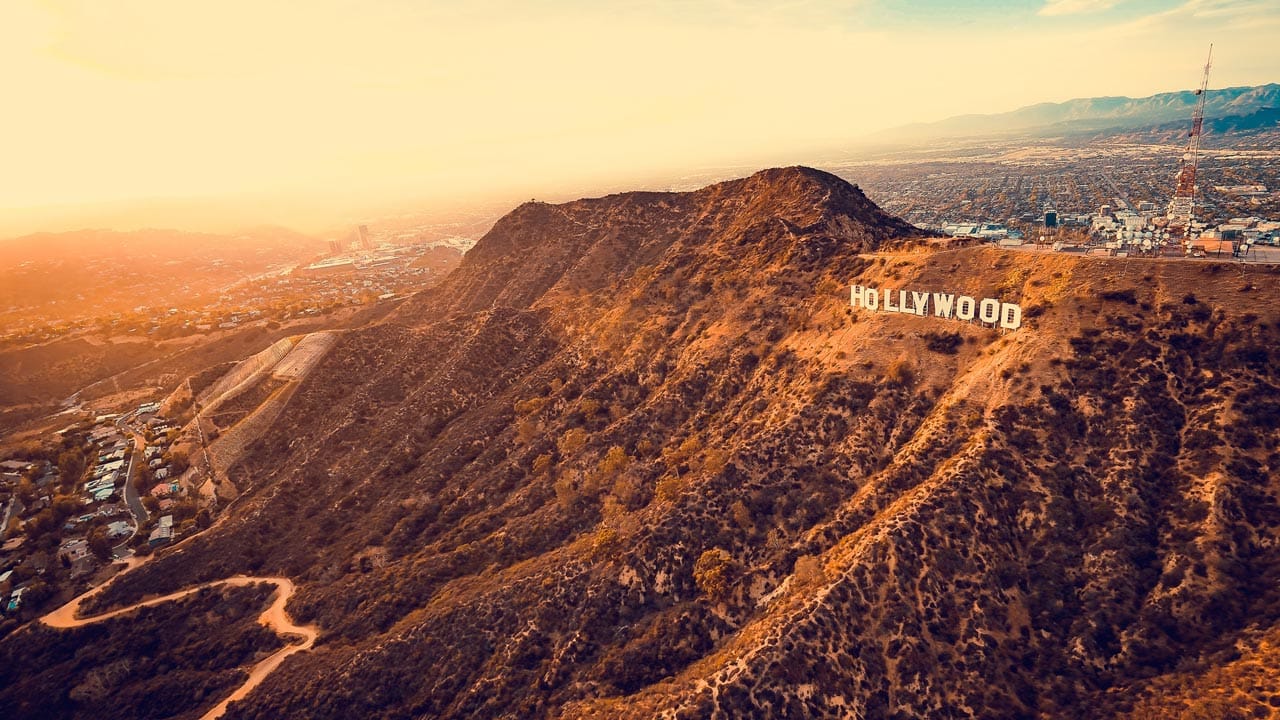
For years, people have been saying "the big one" is coming. As I grow older and start a family of my own, that saying becomes increasingly more important. The "big one" is coming, but no one knows when. We've gathered helpful information and tips regarding the California earthquake that is inevitably coming and things you can do to better prepare yourself for when the moment does come.
That's easy. It's when the surface of the Earth shakes. Earthquakes happens more often than you most likely know. We just don't feel many of them.
The San Andreas Fault is California’s largest fault zone, and one of the world's most famous fault systems. This fault zone is the boundary between two plates that make up California, the Pacific and North American plates, that runs from the Salton Sea to San Francisco. If you live in San Diego, Los Angeles, or Riverside, you’re on the western Pacific plate. San Francisco, Sacramento, and the Sierra Nevada all sit on the eastern North American Side. But just because you don’t live near the San Andreas Fault itself, though, doesn’t mean you’re safe: California has 500 active faults all over the state.
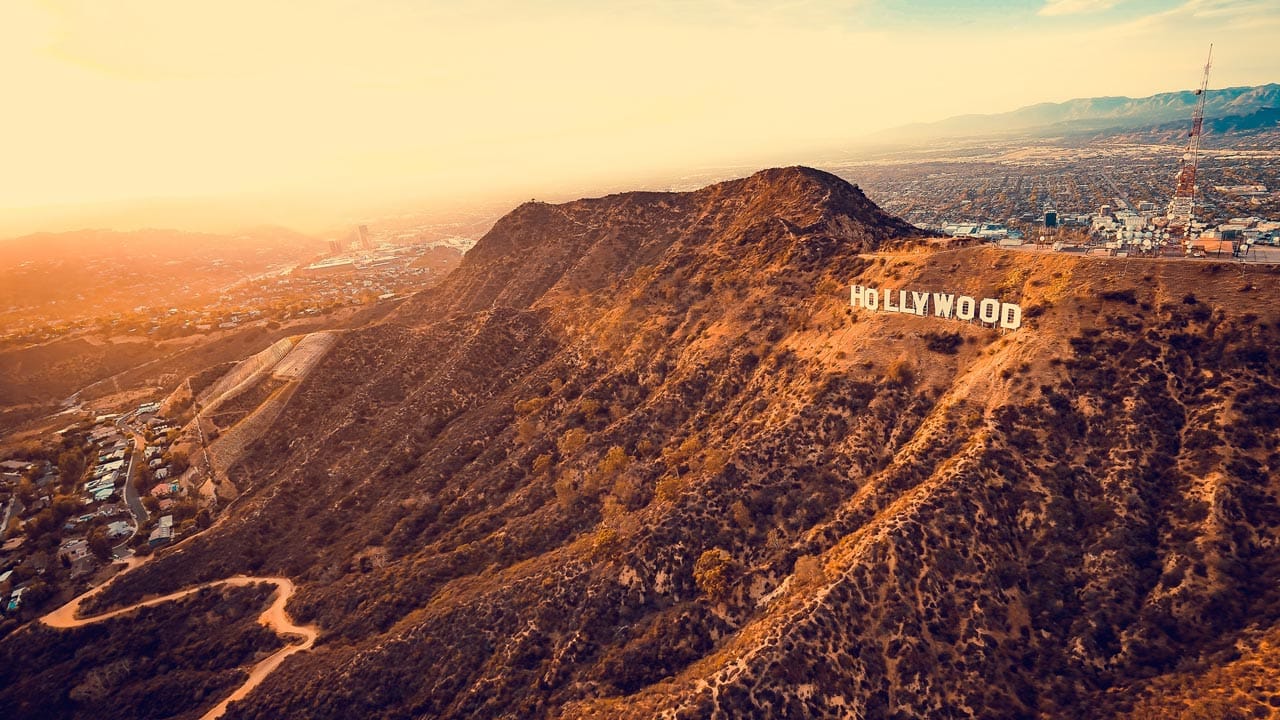
Remember the earthquake in Northridge 25 years ago in 1994? I was still young when that happened so I don't remember it myself but reading about it is eye-opening. The Northridge earthquake killed 58 people and injured more than 9,000 people and had a 6.7 magnitude. So how big exactly was the Northridge earthquake? Earthquakes are measured on a magnitude scale and range from "minor" to "great."
California's "the big one" is expected to be a major earthquake, consisting of a magnitude scale between 7 M - 7.9 M. The past "big one(s)" were 7.8 M in San Francisco and ~7.9 M in Tejon. So, it's safe to say they expect the next "big one" to be ~7.8 M or more. That would be 44 times stronger than the Northridge earthquake. Pretty terrifying!
Ok enough of scaring everyone, but it's important to understand what experts are expecting and predicting.
I am not sure, but here are some simulations of how "the big one" might play out in California:
Holy sh*t! The point of this article is to give you the information you need to prepare yourself for "the big one" and that's what I intend to do.
According to The ShakeOut Scenario, a 7.8 M earthquake along the San Andreas Fault would cause catastrophic events. Here are a few of the outcomes, you can read the rest here:
You might not be able to be fully prepared for a major earthquake, but we have compiled a list of essential things below that you can do to get things ready for a major earthquake:
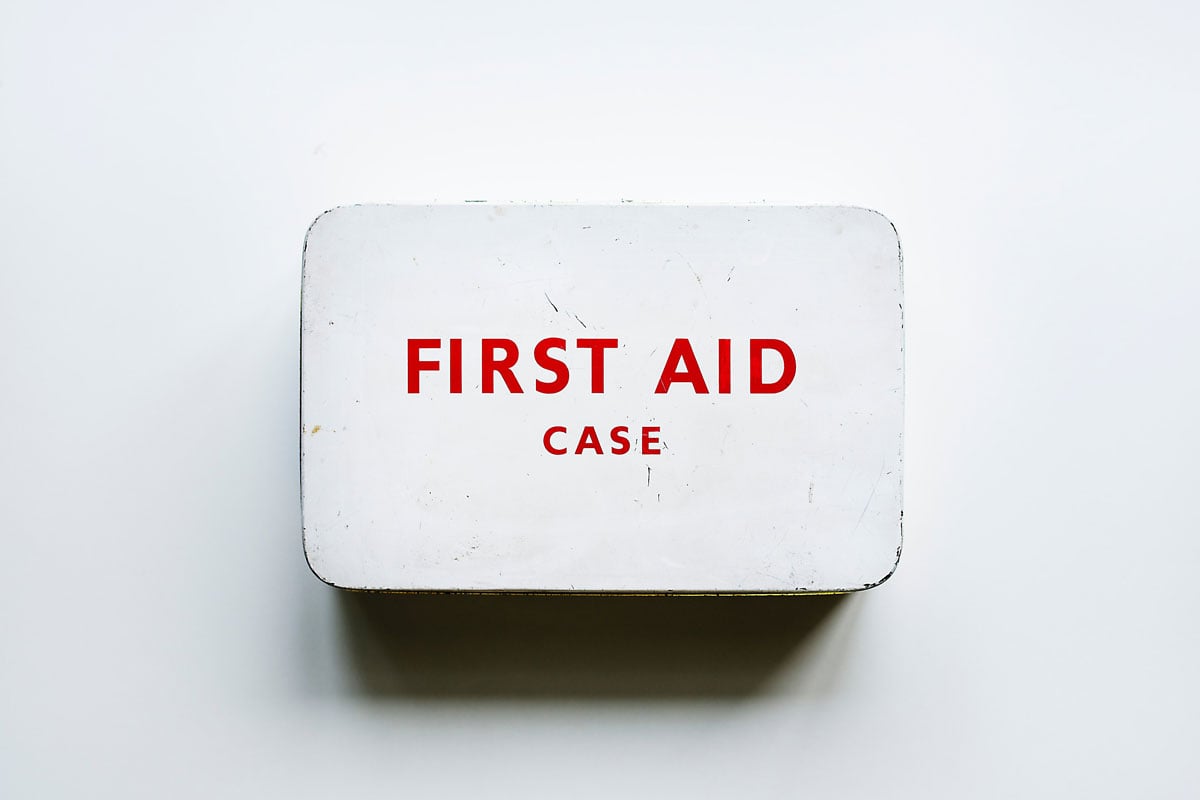
Everyone's needs may vary depending on family sizes, medical needs, disabilities, etc. This survival list is not a comprehensive list, but includes the basics of survival for an extended period of time:
|
|
The Red Cross of America has provided a more extensive list of items for your earthquake survival kit.
Know who to call when "the big one" happens. This includes family, children, spouses, and neighbors. Try to prioritize your list and when the time comes, try to remain calm and go down this contact list one-by-one.
If you have children, make sure the school and teacher have a well designed plan on how to keep your children safe during a major earthquake. We have no idea when "the big one" is going to happen and we don't know what time it will happen. The earthquake could happen when you are at work and your children are at school. For peace of mind, contact your kid's school and make sure they know what to do during a major earthquake.
Protecting yourself during a major earthquake involves covering your head and neck under a table, desk, or other sturdy furniture. Make sure your furniture is safely secured and tightly fastened to ensure protection if you or your family is underneath it. If you are replacing old or damaged furniture, make sure you spend the time assembling it correctly to avoid any potential future issues—especially Ikea furniture!
Do you have an older home? Retrofitting to have an Earthquake Brace + Bolt will greatly help prevent your home from sliding off its foundation during a major earthquake. Right now, registration for $3,000 seismic retrofits have opened. "The more houses a neighborhood has that have been retrofitted, the fewer condemned buildings will blight the neighborhood after a catastrophic earthquake and the faster life can return to normal..." said Assembly member Adrin Nazarian. More than 1.2 million houses built before 1979 in high-hazard areas of California are vulnerable to a major earthquake. If your home was built before 1979, read more about how seismic retrofitting can help your home.
Let's break these down.
The doorway/door frame safety tip is old and outdated. A sturdy table or desk, hopefully away from windows is the safest place. Trying to find a doorway (and an open one for that matter) is wasted time you could spend under strong furniture when the earthquake hits.
Running outside or spending valuable time trying to get outside can also be very dangerous. Again, seek cover from a table or desk instead. Also, outside might not be as safe as you think. Earthquakes can cause glass to shatter and if you are running outside, that glass may rain down on you causing potentially serious injury.
Glass and windows, huh? Seems like a big hazard. Well, it can be especially for buildings that do not have security window film installed to safely secure and prevent the glass from shattering.
Oh, come on, I work for a glass company. Did you really think window film wouldn't come up sooner or later? But in all seriousness, many homes and businesses in Los Angeles are not up to code or don't have glass and windows properly secured. The best preventative measure is to retrofit older glass and windows with window security film in order to potentially remove the likelihood of injury or death from shattered/shattering glass.
The "Triangle of Life"? It's a theory of how to survive a major earthquake promoted via viral measures. The American Red Cross doesn't support this theory and recommends drop, cover, and hold.
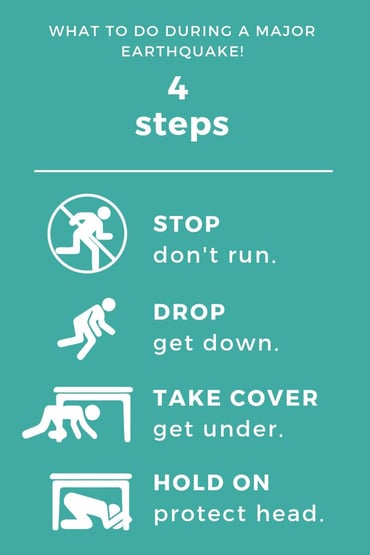
Stop, don't run. We just discussed why it's safer to seek immediate cover instead of spending time trying to get outside to a potentially very dangerous outcome.
Drop. Get down before the earthquake knocks you off your feet and you are rendered helpless. Get in the easiest yoga pose, grab your knees and get in the submission pose.
Take cover! Get under something to protect your neck and head. To avoid getting a concussion from flying debris, just hang tight under something sturdy.
Hold on. Since the earth will be shaking and shaking hard, once you're under something, hold on to a leg or desk so you don't get tossed out from underneath it. Things will be moving around.
You can read a lot more about the proper actions to take to protect yourself during a major earthquake.
I know there was a lot mentioned above and there are plenty more things to consider during a major earthquake or for "the big one" we are all expecting, but this is a good list of things to know to prepare yourself.
Now you know more about the history of earthquakes and the past damage some of the past major earthquakes have created. It's terrifying, but knowing more about earthquakes will help you better prepare for the next one.
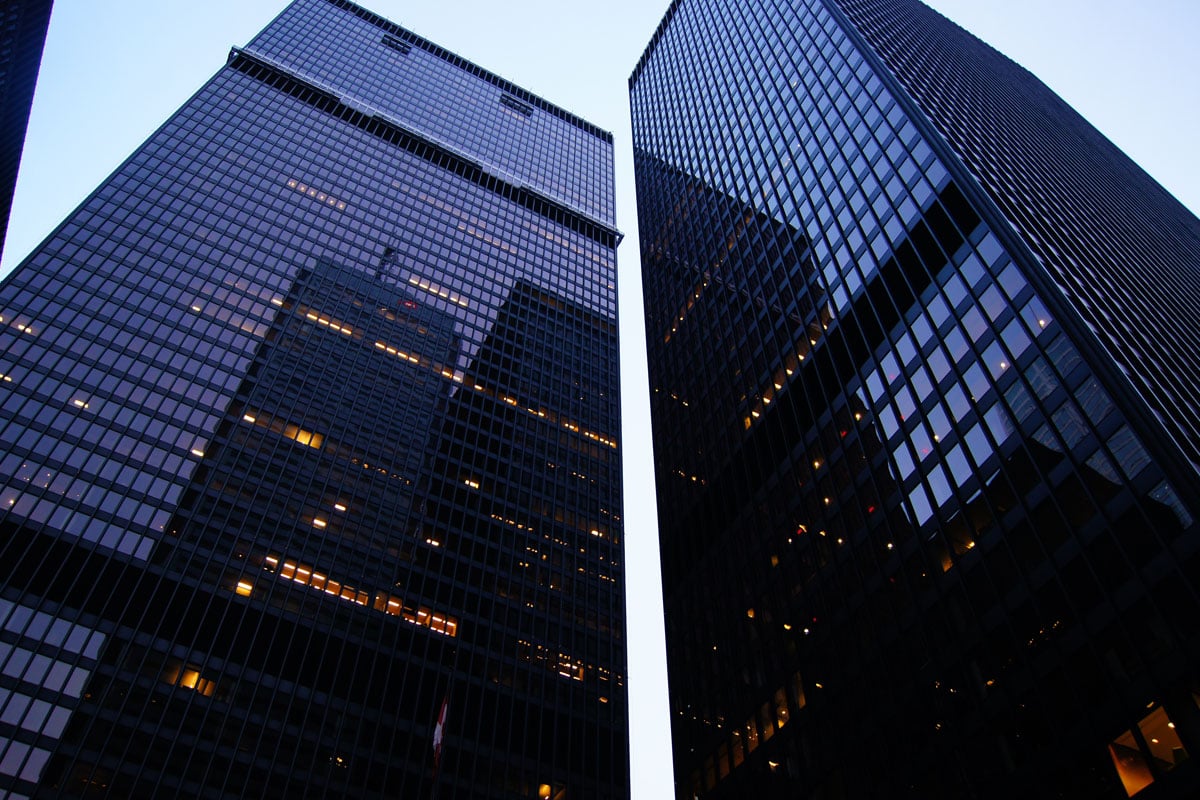
Be sure to keep your cell phone charged to receive Wireless Emergency Alerts from Cal OES. You can also follow your local social media sources (rather than national media) for emergency services, government, disaster aid, and weather for faster and more reliable updates during and after a major earthquake. You can notify your family and friends about your safety through Facebook's Crisis Response or you can register your safety on Red Cross. Also, remember to go one-by-one through your contact list to check in on your loved ones.
Don't forget what not to do and focus on seeking immediate shelter, dropping, getting under cover, and holding on to protect your head and neck.
Take advantage of the seismic retrofitting grant to add the Earthquake Brace + Bolt to prevent your home from sliding off its foundation during a major earthquake. It can save you a lot of money and stress.
Shattered glass is very dangerous and can cause serious injury or even death. If you have questions about window security film you can reach out to info@solarart.com or you can request for a free quote. We can also send you free security window film samples!
These Stories on Residential
Solar Art is excited to announce another acquisition with New York Window Film!
Read this postSolar Art is excited to announce another acquisition with American Window Film!
Read this postShould I tint my home windows in the winter with residential window film?
Read this postCorporate Location: 23042 Mill Creek Drive, Laguna Hills, CA 92653
Copyright 2024 - Solar Art | All Rights Reserved | Contractor's License #1054307
No Comments Yet
Let us know what you think